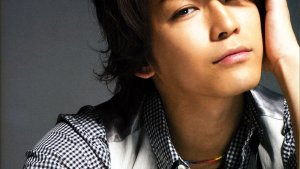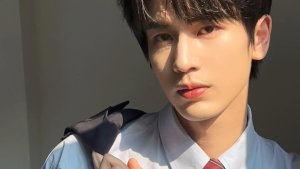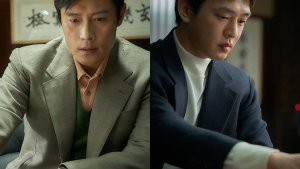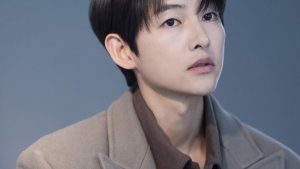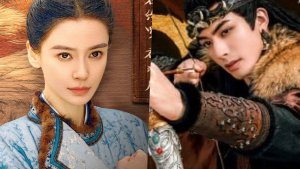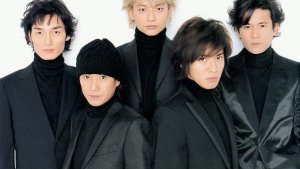 A look at SMAP dramas throughout the Years
A look at SMAP dramas throughout the Years
Hi, I'm new to writing articles on this website and for my first article I wanted to talk about why you should give Japanese dramas a chance. I've wanted to write this article for a while because as some of you may or may not have noticed, the majority of articles here are focused on K-drama and as I'm currently not very interested in K-dramas, I can no longer relate to any of the new articles that come out. So let's jump right in to it!
I've done some research and all I had to do was type in "why J-dramas suck" to see what people are saying about why they dislike or won't watch Japaneses dramas. I saw that the reasons were filled with a lot of hate and were non constructive, for example they were of the opinion that the actors aren't cute or even that American TV is better. Also just over the years on random threads and places like Tumblr I read that there is this sort of divide amongst drama fans. We do have to admit, when it comes down to it, we are mainly split between Japanese drama fans and Korean drama fans. Even though both, Japanese & Korean drama fans are willing to check out a random Taiwanese drama, there are some people who won't cross over between Japan and Korea. In fact, I found a thread right here on MyDramaList and read some of people's reasons for disliking J-dramas and preferring K-drama. Some of these reasons were:
1. The actors are better looking in K-dramas.
2. The acting in J-dramas is weird/ strange/ bad.
3. The cinematography in J-dramas isn't up to par with K-dramas.
4.The duration of the shows is too short.
5. J-dramas lack escapism and are too real.
6. Japan is not good at romance dramas.
7. Too many idols in J-dramas.
8. Japan is stuck in a time warp.
Okay, taking these basic reasons into account we're going to look at the world of J-drama and why I think that some people just started off with the wrong drama when they tried to watch a J-drama.
Let's start with reason number one: The actors are better looking in Korea than in Japan.
I have to admit that this is a hurdle that I will never climb over when I try redirecting people's attention to Japanese shows because they think that the male actors aren't as good-looking as the Korean ones. I won't sit here, like my high school self, and shove twenty different pictures of celebrities that I think are better looking in your face because I know that physical appearance is definitely something that is preferential and I can never convince someone that an actor is cute or good-looking no matter how hard I try. However, I can say that maybe if you tuned in to like one or two shows and formed your opinion based on that, it would not be a just representation of all the good looking actors that Japan has to offer. When I first started watching dramas it was, and I'm aware of this now but was not at the time, the towards the beginning of the Hallyu wave and the popularity of Asian dramas in general was increasing internationally. This was in 2006, and I was in middle school. My first Korean drama was Full House and that of Japan was Gokusen, both basically were classics in their respective drama worlds. I was very much attracted to both male leads and started watching more of their works, so I guess in that aspect I got lucky in the beginning because I didn't have the problem of so and so is not attractive to me.
However, and I'm saying this as an extremely shallow drama watcher who just loves looking at cute actors, I think sometimes it's also important to look past the outward appearances and watch the actual show. You'll still end up enjoying yourself :)
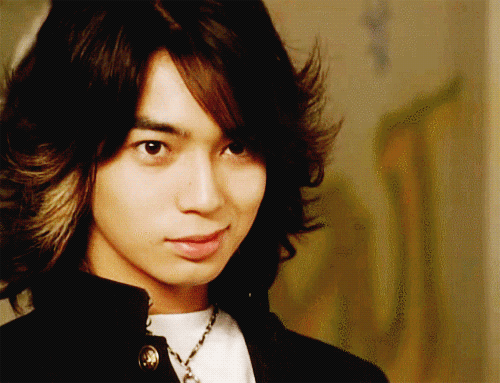
Moving on to reason 2: The acting in J-dramas is weird/ strange/ bad.
I want to know what dramas people are watching and what their usual taste is, when they make this statement. I mean are you watching dramas like Anna-san no Omame, where her overacting is obviously done on purpose for her character or are you watching something like Atashinchi no Danshi and you just think that everything is weird so you don't want to give anything else from Japan a try? I'll have to admit that compared to Korea, Japan definitely has some more outlandish aspects to their their TV shows, but isn't that what makes them worthwhile? In the beginning of the Hallyu wave, we had dramas like My Girl and Full House where both the actors and actresses had some scenes in which they overacted. So this is why I am confused as to how Japan gets this bad rep for being the country of bad acting. Every country does it, it's not always a bad thing, sometimes it's needed and makes the show fun.
Japan has definitely been the country to go to when you want to watch something "different", something "otherworldly". They gave us shows like Yokai Ningen Bem, Yamato Nadeshiko Shichi Henge, and Yamada-kun to 7 nin no Majo to name a few slightly weird shows and then there are shows that people label as very strange like 49 and Oniichan Gacha. But every person that I have spoken to has loved them both for the charm and easygoingness and the overall uniqueness of the storyline. Then again, these are TV shows, so some people just do not enjoy watching "weird" things. However, I don't want people to have this misconception that everything Japanese is automatically "weird" and not enjoy a J-drama or two. Japan has a lot of variety for every taste and every mood. If "weird" just isn't your taste, move on to the next show and you'll probably find something more serious or even better than the last show.
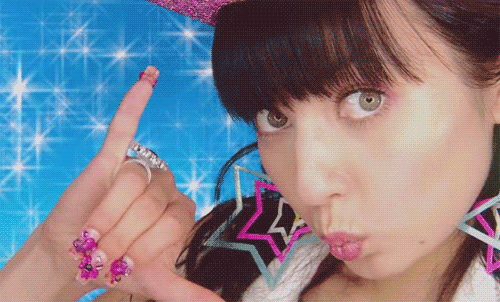
Reason 3: The cinematography in J-dramas isn't up to par with K-dramas.
K-dramas are definitely known for having some of the most wonderful cinematography out there in drama land, in fact I think it's their trademark. They use beautiful filters and shoot only at the most aesthetically appealing locations, which is something that I admittedly enjoy while watching a K-drama.
Japan does not spend a lot of money on TV. There isn't that much research done in English that talks about how much funds they really use on their productions and all that, but from what I've heard actors talking about in interviews and things I can make the following conclusions. Firstly, Japan does not treat their shows or movies like Hollywood treats it's movies. They will not shut down a major area just to get a good shot or to contribute to a film, whereas I've heard that for the movie Seoul with Nagase Tomoya, they shut down many roads in Korea to film it. Secondly, Japan uses filters to enhance their visual aesthetics but not like Korea does. Korea has what I like to call this Instagram filter on all their shows where everyone's skin looks really smooth and nice and the area around them looks mystical like a fairy tale book. Whereas Japan uses dark filters or grainy filters for their darker productions and a more saturated filter to make colors really pop so as to emphasize the fact that the world that these people live in is otherworldly not real. For example in dramas like xxxHOLIC and Oniichan Gacha,
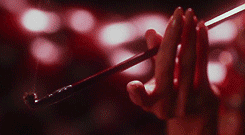
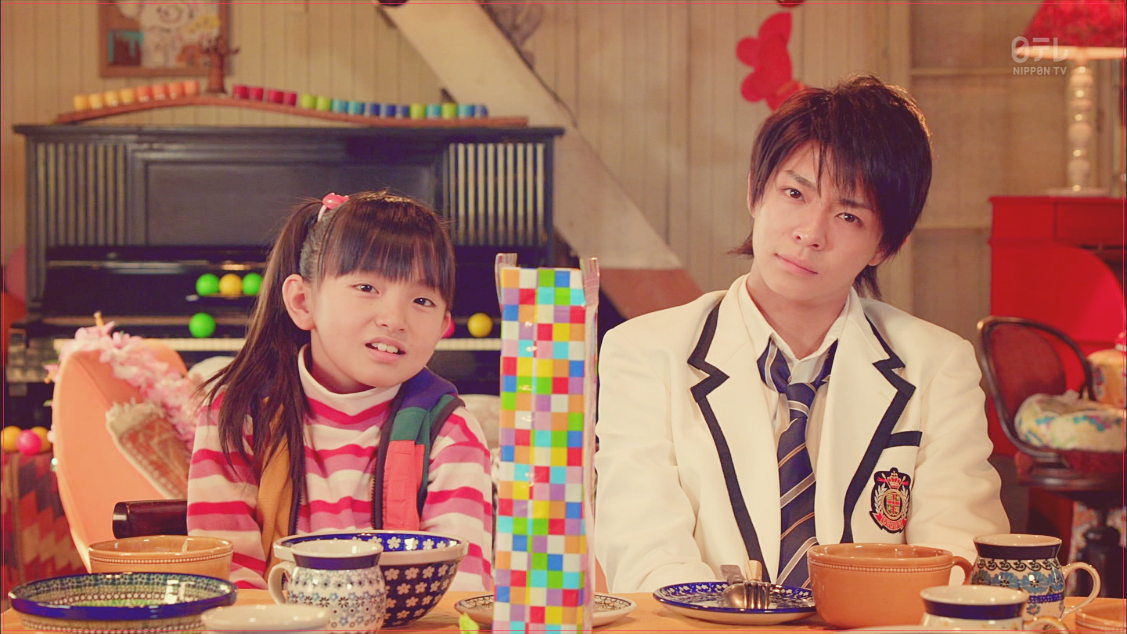
xxxHOLIC had this very saturated look to it that emphasized all of the deep colors that Yuko-san wore and what the inside of her shop looked like while Onii-chan Gacha had this very bright, almost fairytale aspect to it's production from the colorful set to some of the character's outfits, it was just full of bright colors.
Reason 4: The duration of the shows is too short.
Well for the most part it is true that Japan, unlike Korea, Taiwan, China, or Thailand has a very short span for TV dramas. In fact, I think Japan has some of the shortest series I've seen out of any country that I've ever watched a television series from. But that is usually the appeal to people. For a lot of people, those 12 episodes are enough, because the story isn't allowed to drag too much or become monotonous. I'm one of those people that likes a good story, but doesn't want it to go on for too long because then I tire of it. This could be another reason because of which I might not have been able to finish K-dramas as of late, especially when J-dramas are so short. I understand the appeal of a slightly longer show, of about 16-24 episodes, that is standard in K-dramas which are 1 hour and 5 minutes long. They allow you to get really intimate with the characters and the story.
However, when you watch a J-drama that has 10 episodes, usually the pace is just right for those 10 episodes at 45 minutes a piece. The Japanese have almost mastered this sort of short but sweet technique of starting a show, making you fall in love with the characters, and then ending it. You tend to feel satisfied, if it's the sort of drama where they want you to be satisfied with the ending. Japan also likes playing with it's viewer's emotions and to artistically leave a lot of their shows hanging on the last episode. They've never truly made me feel like they needed to extend the length of their shows because their length is just fine. But if you want a longer show you could always take up their Taiga dramas which are 49 episodes and have stunning cinematography.
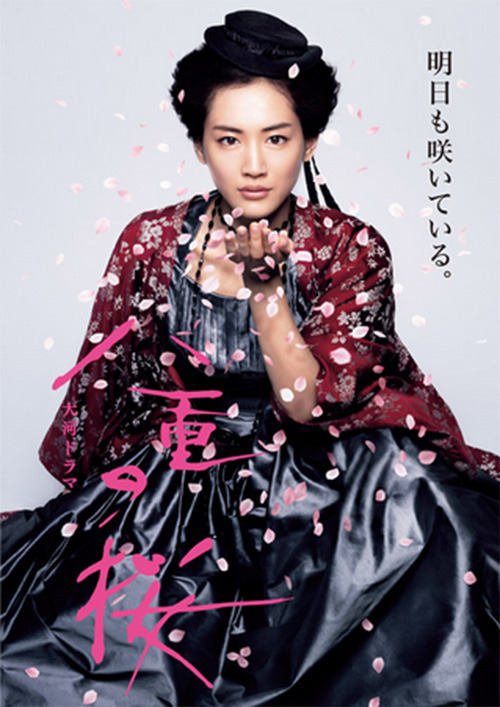
Reason 5: J-dramas lack escapism and are too real.
This reason does not make sense to me only because maybe I watch too many J-dramas and have seen many different kinds of shows. I think this means that unlike K-dramas, J-dramas feel more like you could put yourself in that person's situation and whatever dreadful thing is happening to them, you feel like it could happen to you. It doesn't give you that warm and fuzzy feeling inside like when you watch a romantic K-drama. Yes along with the weird, Japan is known for it's realism in drama world. They have lots of character driven and slice of life dramas that make you feel like you could be watching yourself. And yet, they also have a lot of fantasy. Take for example dramas like Akumu-chan or The Memorandum of Kyoko Okitegami, both are very unrealistic and involve fantasy but they also have hints of romance and aspects of real life. I personally watched every episode of Okitegami Kyoko twice because I really wanted to be in that world.
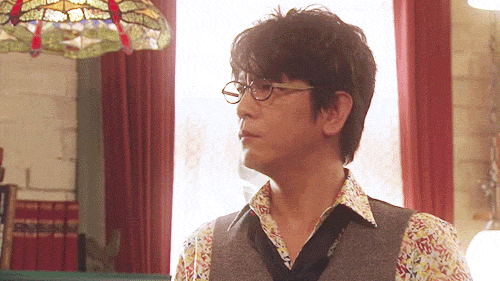
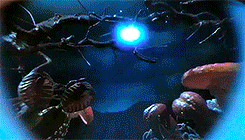
Reason 6: Japan is not good at romance dramas.
I was surprised to say the least when i saw this statement but then I got to thinking about it and I remembered one season in 2013 when all Japan had was one romance drama and I believe it was Itazura na Kiss and a bunch of police dramas. But does that mean that Japan is not a go to for romantic dramas? I personally don't think so. I do admit that I love the fact that not every drama from Japan is focused on fluff and romance even though I love that stuff, but that it also has other genres.
One reason, I think, everybody believes that Japan is not the go to for romantic is because, like I said they're known for their realism, weirdness, cop shows, and dark thrillers. But most drama fans do not reach out to watch anything that was aired before 2005. Japan was once a leader in romantic dramas. Throughout the 80s, 90s, and early 2000s Japan was just full of romantic titles like 101st Marriage Proposal, Aishiteiru to Ittekure, Long Vacation, Love Generation, Love Story, For You, Majo no Jouken, Mukodono!. The list goes on and on, in fact most of the 90s dramas that I ended up watching were romantic in nature. And just like the modern day K-dramas, they usually start off really goofy and happy go lucky but start to tug at your heart towards the end before the fateful ending of them getting together. The only difference is that in J-drama it's never guaranteed that they'll get together. It may be hinted at or they end up being like really good friends working towards a relationship again, or they just don't end up together at all.
Some of my favorite love stories in drama land are actually Japanese, so I want the masses to give those romantic shows a chance as well!
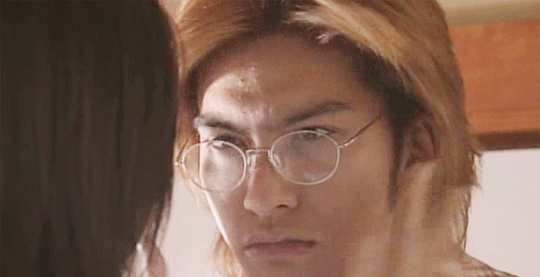
Reason 7: Too many idols in J-dramas.
Maybe I'm biased and can't speak on this one too much because I am a huge Johnny's fan along with being a drama fan. What I've noticed is that, even if an idol is part of a drama, it does not automatically become bad or not worth watching. Some of the most enjoyable or most well known titles out there have idols in them. I see a lot of people out rightly refusing to watch idol dramas because they feel like the idol will make it a bust. Many people feel like Yamashita Tomohisa can no longer act like he did when he was in Proposal Daisakusen or Kurosagi. But if those same people refused to watch him because he's an idol, they would have missed out on a beautiful drama like Algernon ni Hanataba wo or an enjoyably cocky (slightly creepy though) character that he played in From Five To Nine. Just like any other actor who you may feel was good in one drama, but lacked something in the next, it also applies to idols. Some gradually improve their acting with each show/ movie that they're in, some fluctuate, and some Johnny's are actually natural born actors and I don't understand the hate they receive just because of the company that promotes them.This is probably the most common reason I see around the internet because of which people don't want to watch some dramas and I think that, that is a shame because they've been in some great ones.
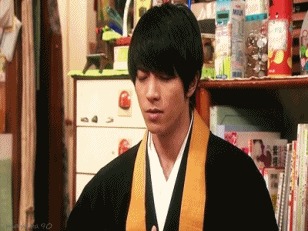
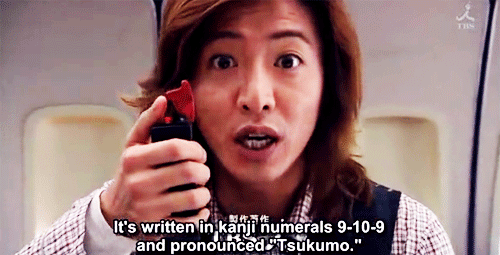
Moving on to the last and final reason, Reason 8: Japan is stuck in a time warp.
I heard this comment on an interview with a Youtuber who vlogs about Asian dramas like that of Korea, Japan, and Taiwan, but mainly Korea. Her channel name is HallyuBack. She did an interview for an Mnet program to talk about the different types of dramas out there and how they differ. Now it was on a Korean channel so of course everything is basically going to be in favor of K-dramas. She made this one statement that stuck with me. She said J-dramas are stuck in this time warp that they can't seem to get out of. I can't remember what year she specified when she said that they had stopped progressing but I strongly disagree with that statement.
Just like everywhere else in the world, TV and the styles used to produce TV are always changing. I can say for sure that a show in 2016 is definitely different from a show that was made in 2006 or even 2010. If I were to break it down into what I felt like was my own timeline for J-dramas and their changing styles I would have to say that the 90s were pretty solid in being romantic with a lot of dark romances and mature romances.
Then that's cut in the 2000. To me, the difference between 1999 and 2000 is so apparent because the 90s had this aura around the shows and even without knowing sometimes I'm like that's not 2000s, it must be late 90s and I'm usually right. Then you have what I like to call the romantic left overs of 2000-2005 where everything is very lovely and has mature themes but bubbly and more exciting dramas start to make their debut like Gokusen, Artificial Beauty and Kimi wa Petto. Then you have the next era of 2006-2010, in which a lot of those dramas popularly known to be "weird" like Samurai High School, Hana Kimi, and Atashinchi no Danshi but also a lot of friendship heavy ones like Nobuta Wo Produce and Tantei Gakuen Q. Furthermore, there is the last stage from 2011-2015. Here is where I think you start to see more use of CGI and a shift in cinematography styles. I think Japan was always the most artistic and is even known for their camera angles but you see them playing with more filters in this era and using different effect. Like in Gokuaku Ganbo, they had beautiful cinematography with cartoonish effects. Then finally you have 2016, I'm starting to get a new feel from the shows that have aired this year. 2016 brought us shows like Higanbana, Rinsho Hanzai Gakusha Himura Hideo no Suiri and Kaitou Tantei Yamaneko. Firstly, what was unique about these shows is that they were all intertwined with guest appearance, everyone was especially excited about the Nobuta wo Produce cross over that happened in Kaitou Tantei Yamaneko with Kame and Maki. Also what starts to separate these dramas from the 2015 dramas is that you start to feel like Japan is putting more money into their shows from 2016. You really get this feeling of higher production costs, although that's definitely not the case with Rinsho Hanzai Gakusha Himura Hideo no Suiri and some of their questionable cgi fires.
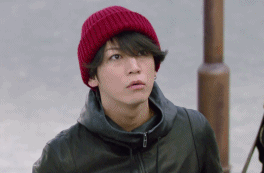
I hope I convinced at least one person to give J-dramas another chance or to watch more of them, because they are truly underrated.


